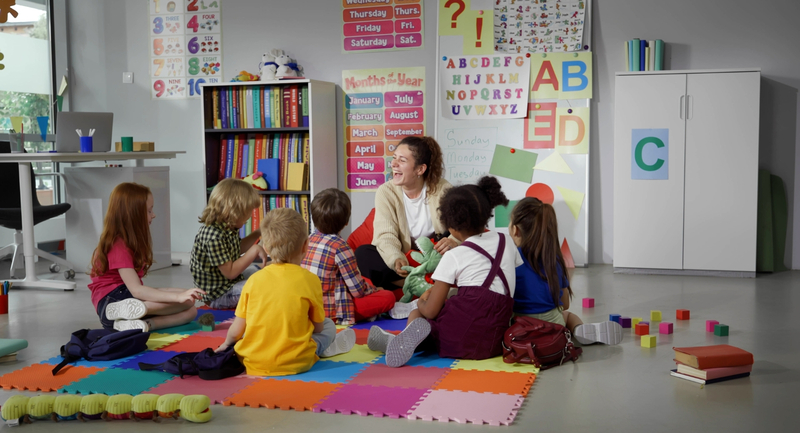Few of us were taught to think of core values as a way of understanding our contribution to the whole. Maybe we were taught that core values were individual lights—deeply personal beliefs that guide the choices we make in life. Or we were taught that our school's core values were the set of beliefs we aspired to espouse as a collective whole.
Unfortunately, most of the core values schools claim are not alive in the halls and classrooms. In fact, I would be willing to bet that a good many teachers couldn't tell you what your school's core values are. Maybe they can recite the core values by heart, but what purpose do those words or statements actually serve in the school? What do these values mean to teachers in their classroom, with their students?
David was a high school principal who had brought his entire leadership team to one of my workshops. He insisted that his school already had a set of three core values and that everyone knew them by heart. When I asked to see a list of these values, he and his team responded by saying them aloud, in unison: "Respect, grit, and pride."
I started by focusing on their first core value, respect. "What does 'respect' mean to you?" I asked. There were a lot of answers. To some members of the team, respect meant that the students were to be respectful to the teachers, but the teachers didn't have to be respectful of the students. To others, respect was more about respecting oneself. A third faction explained that respect meant that students didn't yell out during class or roughhouse in the halls. Everyone had their own understanding of that core value.
If your core values are open to interpretation—if everyone gets to define them based on their own perspective, beliefs, and experiences—what's the point of having them at all? Just to be able to say, "We have core values!" and post them on the wall?
A school's core values are terms of practice that clearly define how everyone will work together to achieve the school's vision and carry out its mission. Core values are not aspirations, and they are not self-congratulatory; they are practical. They tell a school staff, "This is how we need to behave, and this is what we need to do to live out our mission and achieve our vision."
To generate core values that are powerful and useful, make them non-negotiable and get everyone's buy-in.
Make Core Values Non-Negotiable
When I say non-negotiable, I don't mean issuing them by edict or imposing them by decree. I mean there's no room for multiple interpretations of what, say, "respect" means. Writing core values to be non-negotiable terms of practice establishes boundaries for a school. Non-negotiable values define the organizational culture and signal to everyone who works there what their individual role is and how they will be held accountable.
Consider what the amorphous core values shared by David's team could look like if they were rewritten to be clear, non-negotiable standards of practice:
Respect might become We treat others the way that we want to be treated.
Grit might become We keep working until we're successful.
Pride might become We leave everything better than we found it.
These core values clarify for teachers—and for students, too—what they're expected to do.
Ask Staff to Co-Create Core Values
The mistake that most leaders make is that they define the core values for their staff. They tell them what their role should be. In doing so, they're following the advice provided in most leadership books. However, if the core values are not created by and embraced by all, you may get compliance, but you will not get complete commitment.
Start by gathering teachers in small groups and have them discuss what they believe their role in pursuing the school's mission and achieving the school's vision should be. Often, they won't be able to articulate this clearly at first, so it helps to give them a few prompts.
One of my favorite prompts is to ask teachers, "Imagine that you are at your retirement ceremony. What is it that you want your students to say about you and their time in your classroom?"
Teachers will say things like this:
"I want my students to feel that I respected them as individuals."
"I want them to say that I was tough but fair."
"I hope they say that I taught them how to think for themselves and be their own person."
Out of these statements will emerge what is truly important to teachers. Write these down. This will give you a sense of what long-term impact they want to have on students through the work they do.
Next, provide teachers with this prompt: "Imagine that your current students return for their 20th reunion. What is that you want them to say about their time at our school?" This will help teachers consider the long-term impact they want the entire school experience to have on students.
Often, teachers will say things like this:
"We want them to say that here is where they learned to love learning."
"We want them to still remember that we were a family."
"We hope they will say that here they were truly challenged and loved."
Throughout the discussion you will start to notice that certain themes emerge. For instance, the idea of "a respectful environment" or "a passion for learning" might come up more than once. Taking time to unpack exactly what teachers mean by those phrases helps you narrow down themes that seem critical for your entire staff to embrace. Use the ensuing discussion to whittle down your core values to three to five that are truly non-negotiable for your staff.








